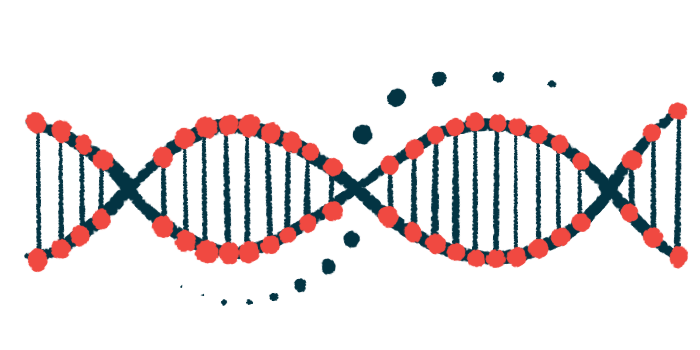HCB-101 shows promise for diseases due to nonsense mutations
Approach may benefit patients with severe hemophilia A, other genetic diseases
Written by |

HCB-101, hC Bioscience’s lead candidate to overwrite certain mutations that lead to hemophilia A, can reach the liver cells of mice, where it should then be able to drive the production of a working version of the blood-clotting protein that is faulty or missing in the disease.
Such an approach to edit nonsense mutations — those that lead to the production of a shorter and often nonfunctional version of a protein, which in this case is factor VIII (FVIII) — could benefit about a fifth of patients with severe hemophilia A, according to the company.
In lab-grown cells, HCB-101 indeed led to the production of full-length FVIII, despite the presence of genetic information that would otherwise have resulted in the production of a truncated, or shorter, version of the protein with no particular function.
Phase 1 clinical trial in severe hemophilia A expected in 2025
hC Bioscience plans to build on these preclinical data to begin studies required by regulators to check that the treatment is safe enough before it can be tested in humans. A Phase 1 clinical trial in severe hemophilia A is expected in 2025.
“Our lead program is on track to rapidly move into the clinic, where we hope to establish our novel protein editing approach as an easily adaptable modality across a broad spectrum of genetically defined diseases,” Leslie Williams, co-founder, director, president, and CEO of hC Bioscience, said in a company press release.
Jose Lora, PhD, chief scientific officer of hC Bioscience, presented the preclinical data in a late breaking session about new technology at the World Federation of Hemophilia 2024 World Congress, which took place April 21-24 in Madrid, Spain.
Hemophilia A is caused by mutations in the F8 gene, which provides instructions for producing FVIII, a protein that is needed for the blood to clot. When FVIII is faulty or not produced at all, the blood cannot clot properly, which can cause patients to experience symptoms such as excessive and prolonged bleeding.
Some patients carry nonsense mutations that introduce a premature termination codon (PTC) — a single change in a gene’s genetic sequence that signals liver cells to stop producing FVIII before it is complete. This results in the production of a shorter version of the protein that may not function.
hC Bioscience is engineering molecules of transfer RNA (tRNA), which are involved in the process of producing proteins in the body, to patch up and overwrite those nonsense mutations. Whenever engineered tRNAs detect the presence of a nonsense mutation, they add in a new protein building block, or amino acid, where it is needed in the sequence to ensure protein production goes on.
HCB-101 uses ‘patch’ technology to restore FVIII to full length
Packaged in lipid nanoparticles, a type of small fatty envelope, HCB-101 uses this “patch” technology to restore FVIII to full length.
“We’re excited to develop tRNA-based protein editing as a potential new breakthrough treatment option for patients with severe hemophilia A,” Williams said.
Beyond severe hemophilia A, the company sees the technology as a versatile approach for treating a number of other genetic diseases caused by nonsense mutations.
“The engineered tRNA that reads through PTCs in hemophilia will recognize the same PTC in the context of hundreds of other genetic disorders as well,” Williams said. “We see tRNAs as not just a novel modality, but a powerful, universal drug development platform that expands the potential of genomic medicine to improve the lives of patients.”




